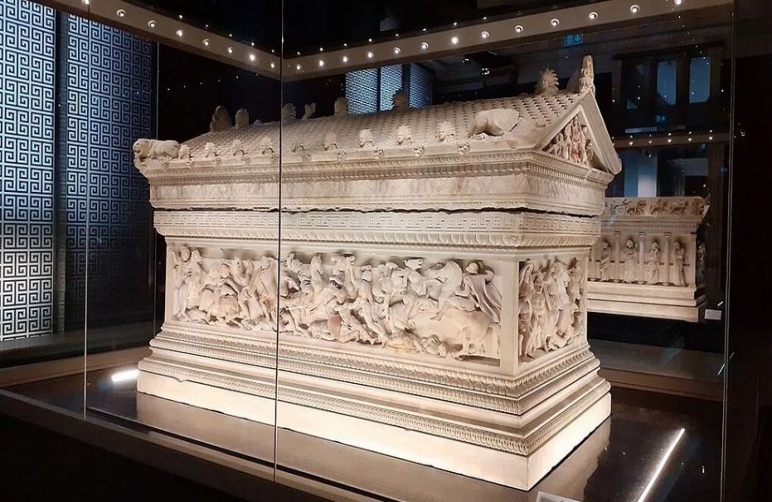According to the report, Mr Mohamed Omran director of the Tourism Department in Siwa ‘announced evidence suggesting the potential discovery of the tomb of Alexander the Great might be in the Marai area.’
Omran explained that in 1995 and 1996 a temple was discovered and the historical mission said at the time that this may be evidence of Alexander’s tomb and noted that three years ago an integrated temple dating back to the Greek and Roman era was discovered.
Siwa is renowned for its archaeological heritage because it contains antiquities and excavations dating back thousands of years, he explained.
It should be noted that two months ago as reported by Greek City Times, Egypt’s Ministry of Antiquities had announced the discovery of a statue of Alexander The Great after nine months of digging, within an ancient “residential and commercial zone” in Alexandria which archeologists believe was the trading centre of the Ptolemaic period.
As they explored the al-Shatby neighbourhood of Alexandria, “the mission discovered a large network of tunnel tanks painted pink for storing rain, flood, and groundwater to be used during the draught time,” said Mostafa Waziri, Secretary-General of Egypt’s Supreme Council of Antiquities, to the Xinhua news agency.
Waziri went on to describe the town’s layout as “composed of a main street and several branch roads that were all connected by a sanitation network.”
In 2020 Greek archaeologist Liana Souvaltzi claimed she had discovered the real tomb of Alexander 20 years ago in Egypt, but had been blocked by the Greek and Egyptian governments from continuing her work ever since.
The location of the tomb of Alexander the Great is an enduring mystery and will continue to be the subject of discovery claims. One thing is for sure: when and if discovered it will be one of the world’s greatest finds.
source:greekcitytimes.com

